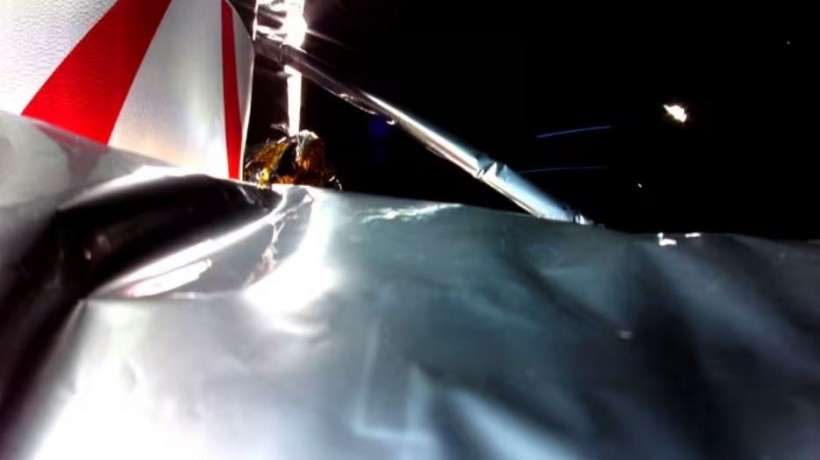Astrobotic's Peregrine lunar lander is not scheduled to land on the surface of the Moon after it suffered significant damage and a "critical" fuel loss while in transit during its launch last Monday (January 8).
Despite this, the Pittsburgh-based company is attempting to conduct as many scientific experiments as possible with the limited capacity of its spacecraft as it attempts to get it as close to the Moon as possible before losing power.
Update #6 for Peregrine Mission One: pic.twitter.com/lXh9kcubXs
— Astrobotic (@astrobotic) January 9, 2024
"An ongoing propellant leak is causing the spacecraft's Attitude Control System (ACS) thrusters to operate well beyond their expected service life cycles to keep the lander from an uncontrollable tumble," Astrobotic said in a statement late Monday. "If the thrusters can continue to operate, we believe the spacecraft could continue in a stable sun-pointing state for approximately 40 more hours, based on current fuel consumption."
The Peregrine's sun-pointing position is critical for the operation of its solar panels, MarketWatch reported.
Also aboard the Peregrine is a payload from Celestis Memorial Spaceflights, which sends cremated human remains into space.
Celestis has yet to respond to reporters' requests for comment.
Read Also: United Launch Alliance's Vulcan Lifts Off for Maiden Flight

Astrobotic Tries to Make Wounded Bird Productive
The Peregrine lander was the very first payload of United Launch Alliance's (ULA) very first Vulcan rocket that launched on Monday. After separating from the Centaur upper stage about 51 minutes after launch,
Astrobotic said that an "anomaly" occurred, preventing the probe from "achieving a stable sun-pointing orientation," as the firm updated seven hours after launch.
Astrobotic's Peregrine mission was part of NASA's Commercial Lunar Payload Services initiative, intending to deliver science and technology to the Moon's surface.
We are working with @Astrobotic to identify the root cause of the propulsion issue and evaluate how it affects NASA’s five science investigations aboard the spacecraft.
— NASA (@NASA) January 8, 2024
Space is hard. We support our vendors and look forward to learning all we can. https://t.co/0J9gbuuUCh
In a statement after the announcement of the mission failure, NASA tweeted that they were "working with @Astrobotic to identify the root cause of the propulsion issue" and evaluate on how it would affect the agency's science investigations aboard the Peregrine.
"Space is hard," NASA added. "We support our vendors and look forward to learning all we can."
Related Article: 'Critical' Fuel Loss Forces Astrobotic Technology To Abandon Peregrine Moon Landing Mission









